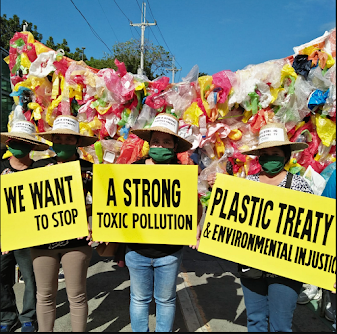Health Impacts of Plastics: From Production to Disintegration

The Very Real Health Impacts of Plastics: From Production to Disintegration Organizing for Plastic Alternatives ( https://opawebsite.wixsite.com/plasticalternatives ) hosted a forum on the emerging research that is beginning to link the omnipresence of single use plastics on July 23, 2024, in Chicago. Professors Gail Prins (UIC) and Timothy Hoellein (Loyola University Chicago) spoke to the wide/vast distribution of plastics across our environments (including all of our bodies) as well as the health implications for humans. Plastics are literally everywhere - in the air we breathe, waters we swim in, water we drink, soil we cultivate, and food we eat. We have known about the problem of plastics for decades (industry kept this nasty truth a secret from us) and have become more and more aware of the environmental consequences from extraction of fossil fuel, production of plastics, distribution, waste and then ultimately breakdown into micro and nano plastic particl...




